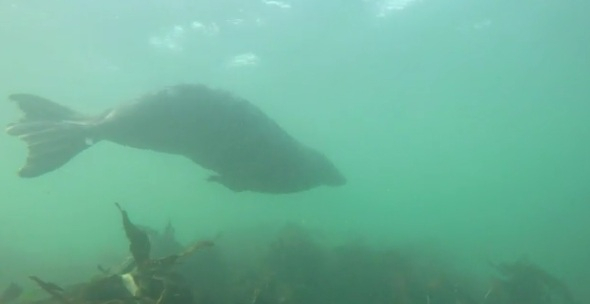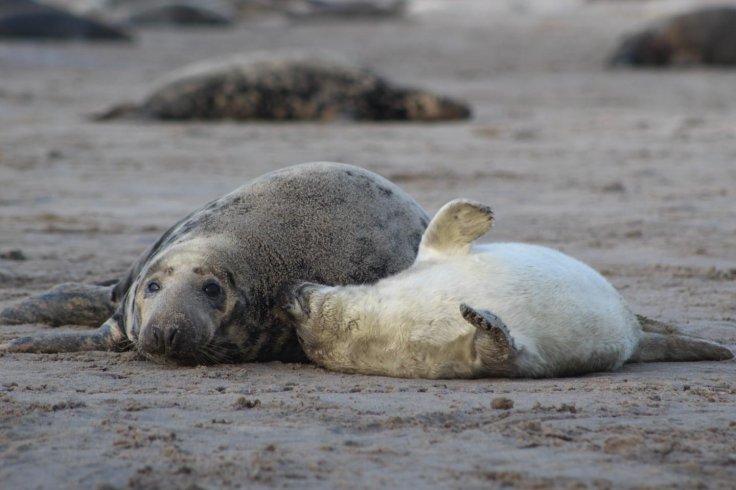A study on grey seals by Monash University in Australia has found that wild grey seals can clap their flippers underwater during breeding or mating season to signal competitors or potential mates in the vicinity.
A video footage taken by researchers underwater shows a male grey seal clapping in the wild, producing a gunshot-like 'crack', similar to other marine mammals which send similar signals but vocally with calls or whistles.
The study discovered how grey seals can also clap their flippers during the breeding season for the first time. "The discovery of 'clapping seals' might not seem that surprising, after all, they're famous for clapping in zoos and aquaria," said lead author David Hocking. While zoo animals are often trained to clap for visitors, "these grey seals are doing it in the wild of their own accord," he said.
The research, published in the journal Marine Mammal Science, used the video footage by naturalist Dr Ben Burville, a Visiting Researcher with Newcastle University in UK for over 17 years. "The clap was incredibly loud and at first I found it hard to believe what I had seen," Dr Burville said.
Signalling opponents and mates alike
The loud high-frequency noise produced by clapping cuts through background noise, sending out a clear signal to other seals in the area and depending on the context, the claps may ward off competitors or attract potential mates, he explained. "Think of a chest-beating male gorilla, for example. Like seal claps, those chest beats carry two messages: I am strong, stay away; and I am strong, my genes are good."

"Other marine mammal species can produce similar types of percussive sound by slapping the water with their body or tail," said Associate Professor Alistair Evans from Monash University, who was also involved in the study.
Clapping appears to be a key social behaviour for grey seals, so disrupting it could impact breeding success and survival for this species, said Hocking citing the increasing human noise pollution that is known to disrupt marine mammal communication, including whale song.
Nursing mother seals
Another study on seals earlier established the fact that the female seals don't change their spots, showcasing the boldness in wild marine mammals. The study by University of Alberta biologists after observing the female seals on Sable Island led by biologist Christi Bubac, measured boldness responses in the female seals when defending their offspring.

Grey seals nurse for 16 to 18 days to get pups as fat as they can and usually pups triple in body mass, enhancing their chances of survival. "On average, we found that bolder females wean pups that are two kilograms heavier than the shyest females, improving their chances of surviving the first year of life," said Bubac.









